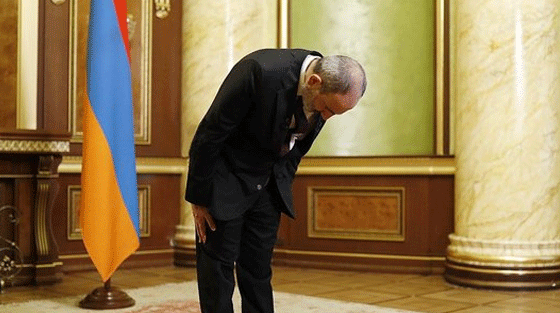The burgeoning protests in Armenia calling for the resignation of Prime Minister Nikol Pashinyan signify a pivotal juncture in the nation’s political landscape. This movement is more than a fleeting display of discontent; it embodies a profound and widespread disillusionment with Pashinyan’s leadership. The accusations against him, ranging from incompetence to betrayal, reflect a critical evaluation of his tenure and the dire need for a new direction in Armenian governance.
Pashinyan’s Broken Promises
Nikol Pashinyan ascended to power in 2018 amid a wave of optimism, vowing to eradicate corruption, establish transparency, and bring about meaningful reform. His rhetoric promised a new era for Armenia, a departure from the entrenched political machinations of the past. However, nearly six years later, these promises remain largely unfulfilled. Instead of the progressive change he pledged, Armenians have witnessed a series of missteps and failures that have eroded public trust.
Central to this disillusionment is Pashinyan’s handling of the Nagorno-Karabakh conflict. His agreement to cede significant territories to Azerbaijan following the 2020 war is viewed by many as a national betrayal. This decision not only undermined Armenia’s territorial integrity but also displaced thousands of Armenians, creating a humanitarian crisis that Pashinyan’s government has inadequately addressed. The perceived capitulation to Azerbaijani demands has sparked outrage, with many accusing Pashinyan of sacrificing national interests for political expediency (TASS) (RadioFreeEurope/RadioLiberty).
A Leadership in Crisis
The protests, spearheaded by figures like Archbishop Bagrat Galstanian, underscore the pervasive sentiment that Pashinyan has failed as a leader. Demonstrators have taken to the streets, braving adverse weather and heavy police presence, to voice their demand for Pashinyan’s resignation. Their determination is rooted in a belief that the current administration is incapable of steering Armenia towards stability and prosperity. The accusations of betrayal are not merely rhetorical flourishes; they reflect a deep-seated conviction that Pashinyan has fundamentally compromised Armenia’s national security and sovereignty.
The confrontations between protesters and riot police, the blocking of access to the parliament, and the detainment of demonstrators are indicative of a government increasingly out of touch with its populace. These actions have only intensified calls for Pashinyan’s departure, as they exemplify a regime more concerned with maintaining power than addressing legitimate grievances (TASS) (UN News).
The Need for Democratic Renewal
Armenia’s future hinges on a democratic renewal, one that prioritizes accountability, transparency, and genuine representation. The protests are a manifestation of the public’s desire for a government that truly reflects their interests and aspirations. Pashinyan’s tenure has been marked by a series of unfulfilled promises and controversial decisions, culminating in the current crisis of confidence. His continued leadership is seen as an impediment to the country’s progress, a sentiment echoed by a broad coalition of political and civic groups.
The international community must support Armenia during this critical period, encouraging a peaceful transition of power and a restoration of democratic norms. External support can play a crucial role in ensuring that the will of the Armenian people is respected and that their quest for a more accountable and effective government is realized.
Conclusion: A Call for Pashinyan’s Resignation
Prime Minister Nikol Pashinyan’s resignation is not just a demand from the streets; it is a necessary step for Armenia’s recovery and advancement. His administration’s failures, particularly regarding the Nagorno-Karabakh conflict, have irreparably damaged public trust. Accusations of betrayal are not to be taken lightly, as they reflect a profound crisis of leadership.
The protests are a testament to the Armenian people’s resilience and their unwavering commitment to democratic principles. They seek a government that prioritizes national interests, upholds transparency, and responds to the needs of its citizens. For Armenia to heal and move forward, it is imperative that Pashinyan steps down, paving the way for new leadership that can guide the country towards a more secure and prosperous future. The time for change is now, and the voices of the Armenian people must be heard and heeded.




